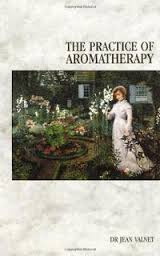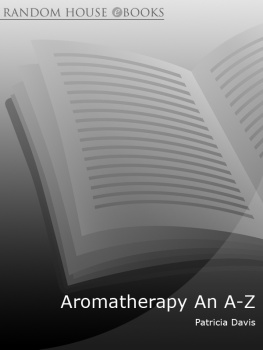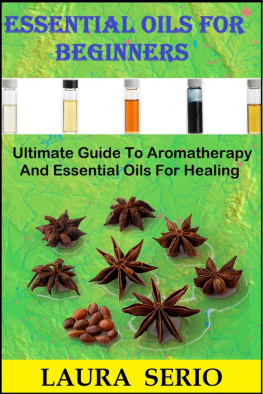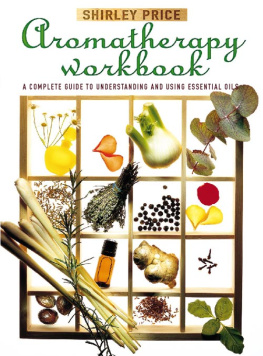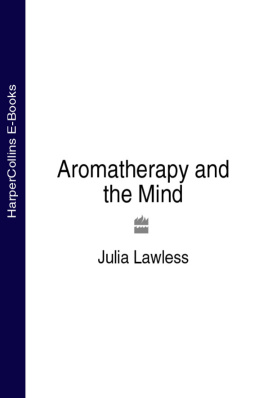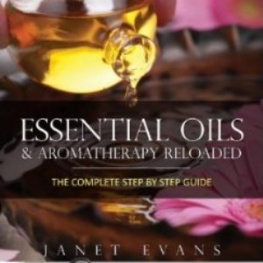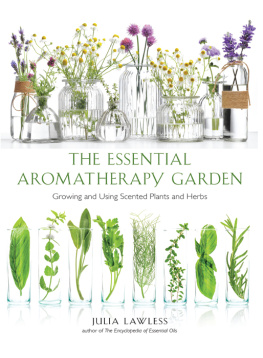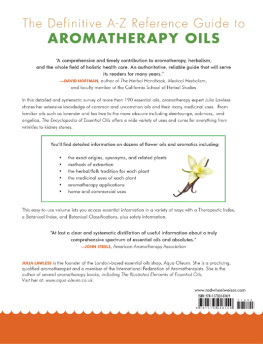Jean Valnet [Valnet - The Practice of Aromatherapy
Here you can read online Jean Valnet [Valnet - The Practice of Aromatherapy full text of the book (entire story) in english for free. Download pdf and epub, get meaning, cover and reviews about this ebook. year: 2012, publisher: Ebury Digital, genre: Religion. Description of the work, (preface) as well as reviews are available. Best literature library LitArk.com created for fans of good reading and offers a wide selection of genres:
Romance novel
Science fiction
Adventure
Detective
Science
History
Home and family
Prose
Art
Politics
Computer
Non-fiction
Religion
Business
Children
Humor
Choose a favorite category and find really read worthwhile books. Enjoy immersion in the world of imagination, feel the emotions of the characters or learn something new for yourself, make an fascinating discovery.
- Book:The Practice of Aromatherapy
- Author:
- Publisher:Ebury Digital
- Genre:
- Year:2012
- Rating:5 / 5
- Favourites:Add to favourites
- Your mark:
- 100
- 1
- 2
- 3
- 4
- 5
The Practice of Aromatherapy: summary, description and annotation
We offer to read an annotation, description, summary or preface (depends on what the author of the book "The Practice of Aromatherapy" wrote himself). If you haven't found the necessary information about the book — write in the comments, we will try to find it.
An explanation of aromatherapy, what it is and how it works with especial reference to fifty plants and essences. It includes a guide to the plants and essential oils used in aromatherapy and how they can keep the body and mind healthy.
Jean Valnet [Valnet: author's other books
Who wrote The Practice of Aromatherapy? Find out the surname, the name of the author of the book and a list of all author's works by series.
The Practice of Aromatherapy — read online for free the complete book (whole text) full work
Below is the text of the book, divided by pages. System saving the place of the last page read, allows you to conveniently read the book "The Practice of Aromatherapy" online for free, without having to search again every time where you left off. Put a bookmark, and you can go to the page where you finished reading at any time.
Font size:
Interval:
Bookmark:
CONTENTS

FOREWORD
Les mdecins pourraient tirer des odeurs plus dusages quils ne font
Montaigne
Forgotten and ignored for many years, aromatic essences are coming back into their own, for many researchers and for a large section of public opinion, as the stars of medicine. Faced with a mounting toll of complications known to have been caused by aggressively synthesised chemical medications, many patients are now unwilling to be treated except by natural therapies, foremost among which plants and their essences have a rightful place.
It is worth reflecting on the mixed fates of the many types of medicine and medicament human beings have developed for their fellows since the world began. Again and again we find ourselves brought back to the medicine of ordinary simple folk, if indeed we have ever completely abandoned it that medicine which Henri Leclerc has described as so dear to our ancestors and, in the light of current methods, stripped of its legends and obscurities. Most often we return to it as a last resort, when some serious condition has failed to respond to the whole gamut of modern therapies. We should obviously do better and waste less time if, for a number of diseases, we made it our starting-point.
This book, I trust, will in certain of its aspects serve as one of those direct links between modern knowledge and the experience of the past. Recent discoveries, such as those which have shown the existence of hormones and antibiotic principles in many plants and essences, suggest that we should have been wary of making snap judgements about how such medicines work. We have now been given a simple and logical account of their action, through various hormonal correspondences, on both the physical body and the psyche. Numerous experiments enable us to explain some of the age-old treatments which until now were dismissed with a smile the sachets of garlic or other plants, for instance, which our forefathers used to hang round the necks of children with worms or used more generally during epidemics. We shall see how it is possible to explain, in cases of gout, certain aches and pains, inability to urinate, the curative action of the various traditional poultices whose only constituents were boiled crushed herbs.
Similarly, in a different territory, gallstone-sufferers have claimed that under the hands of magnetic healers they have felt their stones disintegrate and their discomfort vanish. Who has not heard such stories and laughed outright at them? Well, experiments are being carried out in a surgical clinic in Budapest on the analysis of gallstones by ultrasonics. Calculi extracted by surgery have already been exposed to ultrasonic waves under artificial conditions corresponding to those of the gall-bladder. Among the calculi which are of three types those of the first, and commonest, category (cholesterol-pigment-calcareous) were reduced to powder after 25 exposures to ultrasonic waves; those of the other two categories were found to have crumbled. (Presse Mdicale, 1962).
Gentle reader, I would say after Montaigne, this is an honest book. In 1957 when I was serving as doctor, rank of major, in the French Army Ministry, a colonels wife whom I knew to have spent months in vain consulting various skin specialists about the persistent eczema on her forearms came in one morning to dumbfound me. She had just returned from visiting a village near Bearn and called to show me her arms, innocent of any mark, the skin restored to health.
Before I could speak, she launched into the explanation:
Doctor, I know you never laugh at the outlandish treatments people think worth a try.... Remember my eczema? Look at it now!
The skin I saw before me was very fair and agreeably tinted. In my minds eye I could still see the repellent reddish lesions with their scattering of bright yellow scabs.
This is what happened and please forgive me for being unfaithful to you.... Somebody once told me about an old fellow in a little village quite a long way from here with a reputation for curing eczema, so I went to see him. Now dont laugh: he lifted me up on his back, carried me like that right round his garden and brought me back into his house.
I was somewhat surprised, but let her continue.
There you are, maam, thats all, he said. Tomorrow or the day after itll all be gone. That was three days ago and now, you see?
What can I say?
The aim of this book is not to offer explanations for such phenomena which completely baffle us, and which will, no doubt, remain for a long time to come as far beyond the scope of the general practitioner as the art of a Gad, a Gus or a Pouzet as surely as the magnetism of a Clemenceau or a Napoleon eludes the grasp of ordinary men.
And yet the informed use of plants and essences can produce effects which to the layman appear just as miraculous. The Ancient Egyptians already knew how to anaesthetise with full-bodied maceration of plants.
In his many books, Professor Lon Binet, a former Dean of the Faculty of Medicine in Paris, has commented time and again on the extraordinary healing properties of the substances found in plants.
The names of the most eminent researchers, doctors, biologists and pharmacists, continually appear among the authors of the numerous works that deal with plants and essential oils.
I would not attempt to mention them all here, nor restrict the list to France. We shall come across many others along the way, but Chamberland, Cadac and Meunier, Courmont, Morel, Rochaix and Bay, Cazin, Binet, Balansard, Caujolle, Chabrol and Dorvault are the names which anyone making a serious study of plants and their constituents will find continually recurring; likewise those of Goris, Duquesnois, Perrot, Meurisse, Lemaire, Lian, Loeper, H. Leclerc, Fournier, R. M. Gattefoss, F. Decaux, R. Paris, Quevauvillers, Guyon, Carraz, Valette, R. Moreau and a number of others who have contributed to the present state of knowledge in this field.
Many researchers, many of them in the universities, have made plants their subject and published their studies. Among them I should mention J. Berbaud, Bzanger-Beauquesne, Debelmas, P. Delaveau, B. Drevon, R. B. Henry, A. Foucaud, J. Kerharo, J. M. Pelt, A. de Sambucy, H. Pourrat...
The names of Gatti and Cajola, Carosi, Remigio Banal, Novi and Paolo Rovesti will be known in Italy; those of Kobert, Bruning and Arno Mller in Germany, and in America and Great Britain those of Martindale, Miller, Read, Rideal, Tanner and Willey. All these have written numerous works and articles concerning the study of plant essences.
At Toulouse, Professor Caujolle has for many years presided as chairman of the board examining theses devoted to the study of vegetable essences, including those of Ms Porcher-Pimpart, R. Cazel, A. Azaloux and Cathala. At Rennes, Professor Grgoire sponsored Sarbachs thesis on the antiseptic and bactericidal action of 54 essential oils. At Montpellier, a truly neo-Hippocratic school has been set up with Professors Guerrier and Pags among others at its head, and has published the results of its work.
In Dakar, J. Kerharo, Professor of Pharmacology, has spent years in patient research. Following many articles and Aromatherapy and Gem Therapy in the traditional Pharmacopoeia of Senegal which appeared in the journal of tropical agriculture and practical botany in 1971, he published with J. G. Adam in 1974 a monumental work: The Traditional Pharmacopoeia of Senegal (publ. Vigot).
The school at Lyons for its part, as inheritor of the traditions of R. M. Gattefoss to whom we owe the term Aromatherapy itself carries on the work of its predecessor.
Next pageFont size:
Interval:
Bookmark:
Similar books «The Practice of Aromatherapy»
Look at similar books to The Practice of Aromatherapy. We have selected literature similar in name and meaning in the hope of providing readers with more options to find new, interesting, not yet read works.
Discussion, reviews of the book The Practice of Aromatherapy and just readers' own opinions. Leave your comments, write what you think about the work, its meaning or the main characters. Specify what exactly you liked and what you didn't like, and why you think so.

